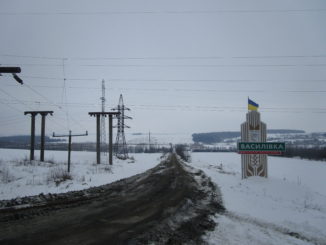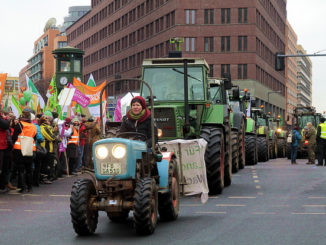
by Laure Ducos
President Emmanuel Macron launched the General State of Food (GSF), an investigation into the French agrifood system in the second half of 2017. Bringing together different food and farming stakeholders, the aim was to combat the various crises in the agricultural sector and work to build a healthy, sustainable and accessible French food system. Laure Ducos reports on how the GSF went and the future of food and farming in France.
France is an agricultural heavyweight in Europe. In 2014, France was the primary producer, ahead of Germany, Italy and Spain, contributing one fifth of European production. In 2015, France’s active agricultural land represented 52.5% of the country’s surface area. As a comparison, figures for Germany and Poland were 48% and 46.9% respectively.
This situation could be enviable, if only it were synonymous with jobs and farmers well-being. But since its creation, the Common Agricultural Policy has taken a resolutely productivist turn. Its funding favours the biggest producers, to the detriment of the smaller ones. In just a few decades, the number of French farms has fallen by more than 50%. A similar trend happened in Germany and Poland, where the number of farms fell by 25% and 30% respectively within ten years. There are also fewer and fewer farmers. In total, the percentage of jobs in the agricultural sector decreased from 1% in the 1950s to just 2.7% today. With increasingly high debt ratios, the situation is becoming untenable for many farmers. They can no longer cope with the repeated economic crises that hit their sector (milk, beef, cereals…) and the growing pressures of an oligopolistic market locked by a handful of purchasing and distribution corporations. A sure sign of this crisis is the average of one suicide every two days among farmers. This is 20% to 30% higher than the average in other occupations.
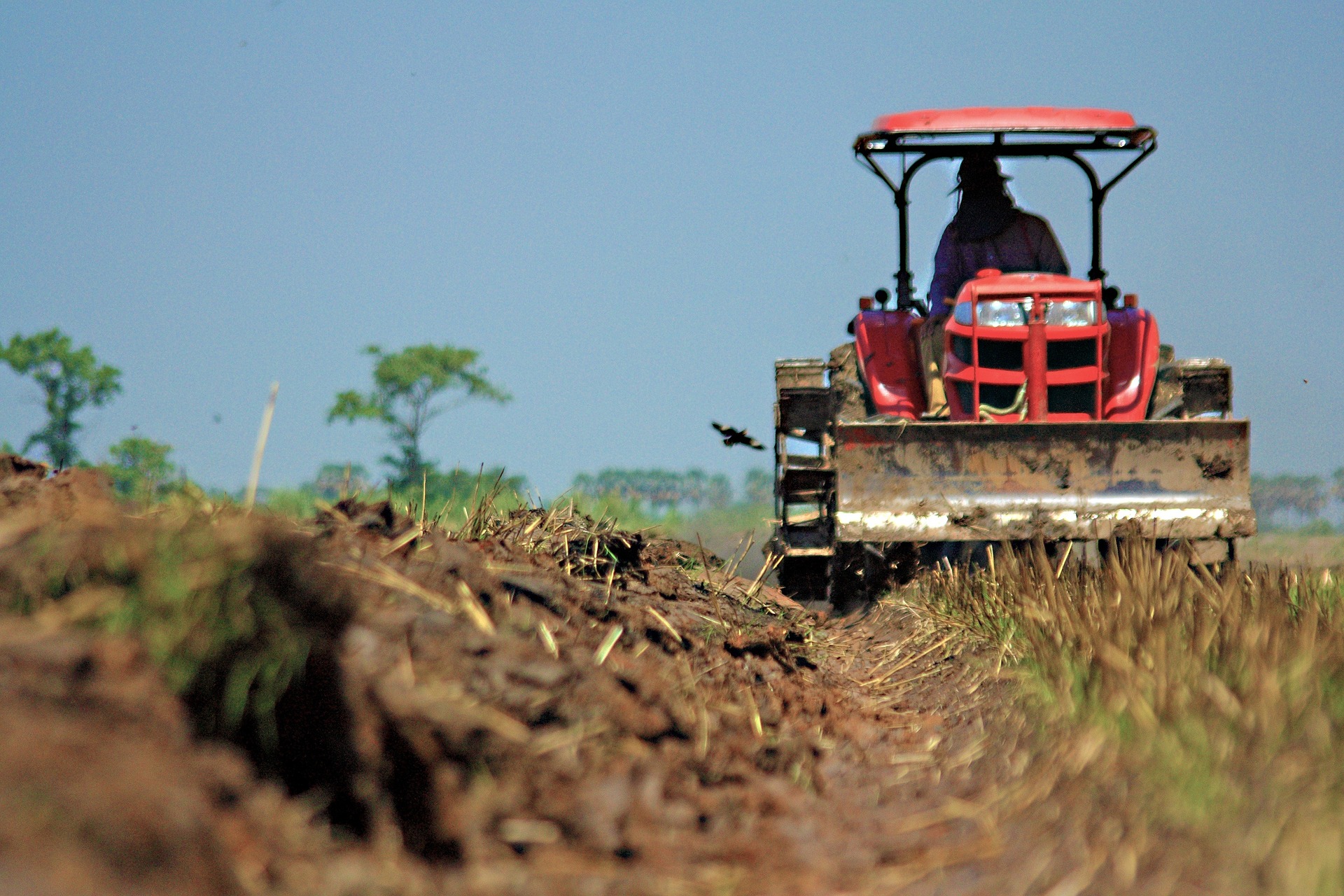
In addition, the CAP, by promoting quantity at the expense of quality, specialization to the detriment of diversity, also has many repercussions for the environment. All biodiversity indicators show a decline in flora and fauna, especially in agricultural settings. A decline closely linked to the increasing use of inputs, the elimination of all “unproductive” elements of the landscape and the impoverishment of soils. Despite the government’s successive action plans, pesticide sales have steadily increased between 2008 and 2015 (+22%). Added to this are numerous crises and health scandals: “100% pure beef” lasagna has been found to contain horse meat, tens of millions of eggs have been contaminated with fipronil (a pest control strictly forbidden in the food chain), baby food contaminated with Salmonella were sold by the largest dairy cooperative, Lactalis, and caused hundreds of infants to fall ill. The consumer has lost confidence and pressure from civil society grows at all levels of the production chain.
It is in this context that Emmanuel Macron, elected President of the Republic in May 2017, decided shortly after taking power to launch the General State of Food (GSF). The goal of these broad discussions between different agriculture and food sector stakeholders was twofold: to respond to the economic crisis in which farmers are immersed, and, on the hand, to ensure the production of healthy, sustainable and accessible food for all.
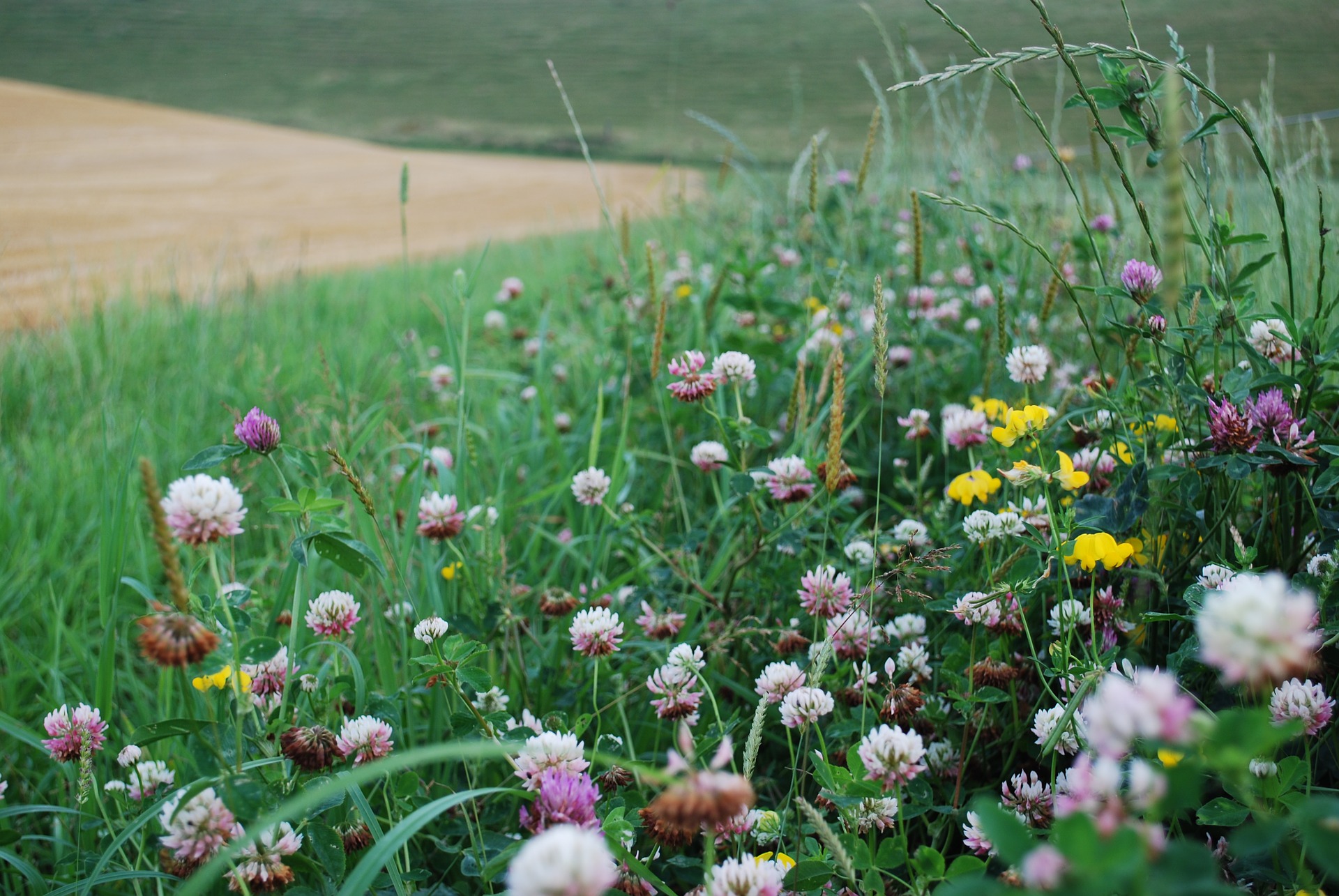
The ambition was laudable, but the means deployed by the government to develop a democratic process did not measure up. Organized in a hurry, the 14 thematic workshops of the GSF gathered an average of about 70 participants at each meeting. Representatives from retail, industry, municipalities… everyone was there. Well, almost everyone. NGOs had to bang on the table to finally be accepted in the closed circles of each workshop.
In the end, the conclusions of the few half-day meetings of each workshop proved to be totally insufficient to respond to the real socio-economic and environmental challenges that our agriculture is facing – challenges that require systemic changes rather than adjustments. Nevertheless, given very short time in which the GSF took place, and the constant lack of transparency of proceedings, we can welcome the resolutions between actors who have never sat at the same table before. The different stakeholders agreed on points as varied as the need to improve the traceability and transparency of agricultural and food products (labeling, digital use, etc.), the necessity to take into account, in contracts, indicators of production costs and the urgency to revise the governance system of our national nutrition and food programs.
On December 21, 2017, the government concluded the General State of Food and launched a phase of implementation of the proposals resulting from the discussions. Firstly, the government asked the inter-branch organization of each agricultural sector (cereals, cattle, fruits and vegetables etc) to develop their own action plans for an agro-ecological transition. Secondly, the government started a legislative process leading to a law “for the balance of commercial relations in the agricultural and food sector and healthy and sustainable food.” Finally, several thematic plans were launched by the government itself, outside the legislative process: a plan on organic agriculture, a plan to phase out pesticides, a plan on fair trade, etc.
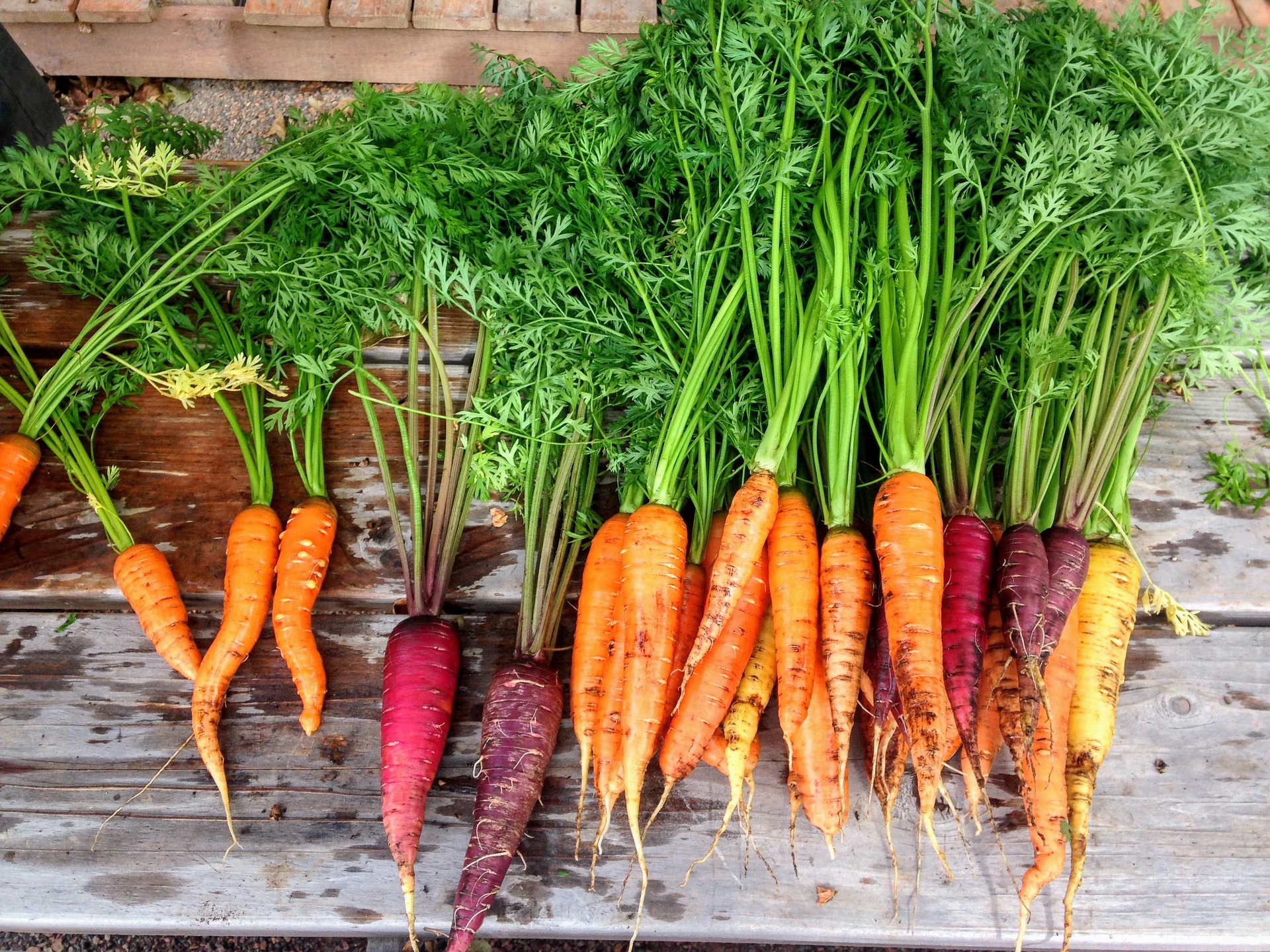
At the launch of the General State of Food, some fifty civil society organizations gathered in an informal platform to exchange and take action. This platform brings together actors from the agricultural world, international solidarity and environmental protection NGOs, consumer associations, etc. It conducted an analysis of the action plans proposed by the inter-branch organizations for each agricultural sector. Unsurprisingly, these plans did not provide a serious answer to the socio-economic and environmental issues that our agriculture and our food sectors are facing. We must not rely on it to trigger a real agricultural and food transition.
Furthermore, with regard to the first draft bill proposed by the government, again, the lack of ambition in content is glaring. The few economic measures presented do not satisfy farmers, and the text contains too few measures to guarantee healthy and sustainable food for all. A few notes on food waste, a few more very vague ones on the introduction of more organic products, local and “sustainable” public catering: that’s all about that one can find there. Nothing serious about animal welfare – an increasing concern for citizens – and nothing about our consumption patterns, such as the need to turn to a more plant-based diet … The list of gaps would be too long to be detailed here.
Finally, regarding the thematic plans launched by the government outside the legislative process, it is difficult to draw up a report at this stage but the first elements are not encouraging. Concerning the pesticide exit plan, the NGOs were barely consulted and only within extremely short deadlines. Regarding the plan on organic agriculture, it is even worse: the main historical and alternative actor on the subject, the National federation of organic agriculture (FNAB in French), was not consulted at all. This is a worrying oversight, especially when we know that the amount of the financial support needed to sustain the development of organic farming in France has been estimated at more than 800 million Euros by that organization. Yet the government keep disengaging from this sector.
Two evaluations of the General State of Food are scheduled for June and December 2018. In the meantime, civil society representatives will continue to mobilize to defend public interests in this process. Huge progress has already been made. Topics that were contentious just a few years ago, like the phase out of pesticides, are now obvious. Mindsets are changing at all levels. And locally, thousands of citizens who have been engaged for a long time will also keep mobilizing. In reality, it is not question here of waiting for a recalcitrant government to start the necessary transition of our agricultural and food models. The transition is already under way. It is now about accelerating it.
Further reading
‘Qui a le pouvoir? Revoir les régles du jeu pour plus d’équité dans les filières agricoles?’




